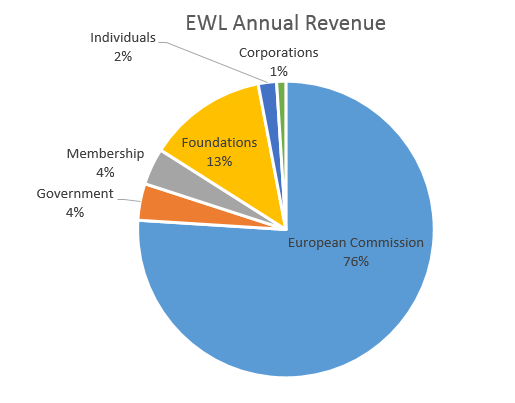By Ian Wishart
Only 24 companies have signed up to Reding’s ‘Woman on the Board Pledge’ to increase the proportion of women on their boards.
Viviane Reding, the European commissioner for justice, fundamental rights and citizenship, is moving towards legislation that would set quotas for the number of women on company boards.
One year after she gave companies “a last chance” for self-regulation, Reding will next week present a report on what voluntary commitments have been made by Europe’s listed companies.
The report, to be published on Monday (5 March), will show little progress. Only 24 companies have signed up to her ‘Woman on the Board Pledge’ to increase the proportion of women on their boards to 30% by 2015 and to 40% by 2020.
When she launched the voluntary initiative last year, the commissioner warned that she was minded to propose legally enforceable quotas if self-regulation proved unsuccessful.
Although there are indications that more companies will sign up to the pledge in the coming days in a last-ditch bid to avoid legislation – Carlsberg, the Danish drinks-maker, said on Monday that it would meet the targets – Reding is expected to conclude that self-regulation has been a failure.
This is underlined by figures showing that, despite pressure to improve representation, the number of women board presidents among the 600 largest listed companies has fallen from 20 to 19.
No legislative proposal will be made on Monday, but Reding is expected to indicate that this is the likely next step.
Insiders say that Reding is determined to introduce legislation on an issue that she feels passionate about, but on which she is facing some resistance from within the Commission.
On Tuesday (28 February), the European Parliament renewed its appeal for legislation, when its women’s rights and gender equality committee voted to demand that the Commission introduce quotas this year “if steps taken by companies and member states are found to be inadequate”.
Mikael Gustafsson, a Swedish Socialist MEP who chairs the committee, said: “We have been discussing this for 20-30 years and nothing has been done.”
He added that the European Union had to legislate to “destroy male stereotypes” which had prevented women from being promoted.
“The position of the European Parliament is quite strong and clear,” he said. “We want to see some sort of quotas.”
On average in the EU, 12% of executives are women, and they account for just over 3% of board presidents. One in three large companies in the EU had no women at all on its board in 2010. Supporters of legislation point to figures showing that 60% of new university graduates in Europe are women.
Belgium, France and Italy have enforceable quotas, with the Netherlands and Spain having legal recommendations.
The European Women’s Lobby, an umbrella group of more than 2,000 women’s associations, published a report last night (29 February) demanding “radical change”.
Cécile Gréboval, the group’s secretary-general, said: “Most progress towards parity on boards has been made in France, where quota legislation was introduced last year.
“Radical change throughout Europe requires similar decisive action also at EU level.”
If Reding does choose to legislate, she will face resistance from member states. Most national employment ministers spoke out against legislation when Reding addressed them at a meeting of the EU’s employment and social affairs council on 17 February.
Only the ministers from the countries that already have quotas came out unequivocally in favour of an EU law.
Reding will also have to face down opposition from businesses, many of which argue against legislation.
Guillaume Cravero of BusinessEurope, which represents employers’ groups from 35 countries, said mandatory quotas would not solve the problem and that a long-term voluntary approach was the only solution.
Germany’s chamber of industry, the BDI, said in a statement that legal quotas did not “represent the realities of business” and that changes in work-place culture, encouraging women into male-dominated jobs and improving childcare would have a better effect.


